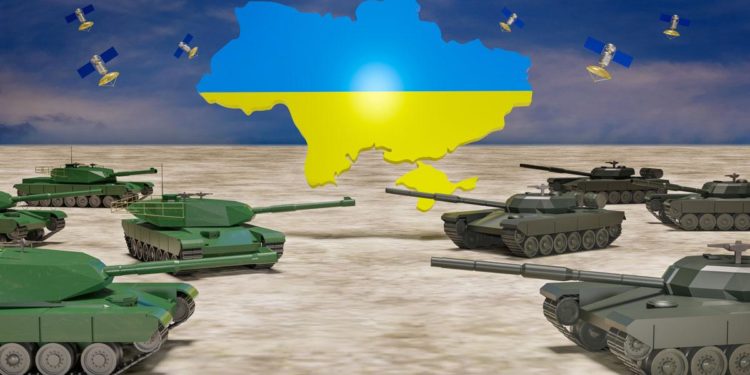The escalation of tension in Ukraine has reminded us of something many investors seemed to have forgotten: geopolitical risk. Sanctions and the inevitable drop in trade have proven to generate a significant negative impact on the different economies involved. We know from the 2014 Ukraine crisis that the economic hit is severe and persistent.
The economic hit of sanctions is undoubtedly highest for Russia. The International Monetary Fund (IMF) estimated in 2015 that “Western sanctions and Russian countersanctions reduced Russian real gross domestic product (GDP) initially by 1–1.5% and that prolonged sanctions would lead to an even larger cumulative output loss. In 2019, the IMF estimated that sanctions reduced Russia’s growth rate by 0.2 percentage points every year in 2014–2018,” as reported in the New Atlanticist.
The impact on Russian citizens is wide even when these sanctions are targeted at individuals and state banks. The most obvious impact is the the local currency’s loss of purchasing power, which has plummeted against the US dollar, reducing salaries and savings in real terms.
The United States does not suffer a relevant impact from sanctions to Russia. It imported around $30 billion from Russia in the first eleven months of 2021 and exported $13.2 billion, according to Bloomberg. However, it does suffer indirect implications as consumer prices soar due to rising energy and food prices. Russia is a relevant global player in the export of metals, agricultural goods, and energy, and sanctions affect the marginal pricing in global markets.
The European Union has far more to lose from a conflict with Russia than the US. According to Eurostat, Russia is the fifth-largest trade partner of the European Union, with imports of $177.9 billion and exports of $104.1 billion. Additionally, reliance on Russian natural gas is very high, particularly in countries like Germany and the Czech Republic. Eleven EU countries import more than 50 percent of their natural gas from Russia. For many it would be impossible to offset the flow of Russian gas with liquefied natural gas brought in by trucks even if they were willing to accept prohibitive prices.
The impact on Ukraine is enormous. In “The Economic Effect of Hybrid Wars,” a study by Professors Julia Bluszcz and Marica Valente, they show that “causal effects are estimated by computing the yearly difference in GDP per capita between Ukraine and its synthetic counterpart after the eruption of the war. Results indicate that Ukraine’s foregone GDP per capita due to the Donbass war amounts to 15.1% on average in years 2013–2017 and, respectively, 5.23% ($460.26), 9.18% ($832.96), 19.63% ($1,823.78), 19.80% ($1,893.38), 21.67% ($2,184.13) in 2013, 2014, 2015, 2016, and 2017.”
There is also an indirect impact on the global economy. Rising tensions in Ukraine are showing the widening differences between the Western countries and the Russia-China-influenced nations. This is more than just about Ukraine or natural gas flows. The West is losing influence in Africa and Latin America in favor of China and, to a lesser extent, Russia. Latin America is slowly shifting toward China and Russia, as evidenced by the messages of the president of Argentina and the newly appointed prime minister of Chile.
The impact of geopolitical risk has made energy and food prices soar higher all over the world. The increase in essential goods prices comes after a terrible year for global real wages, eroded by central bank–fueled inflation.
The Ukraine crisis arrives as well in the middle of an evident slowdown of the largest economies after the placebo effect of massive stimulus plans. These risks add to a scenario where many economies are moving even closer to stagflation, and the ramifications will likely last longer than the conflict itself.
















